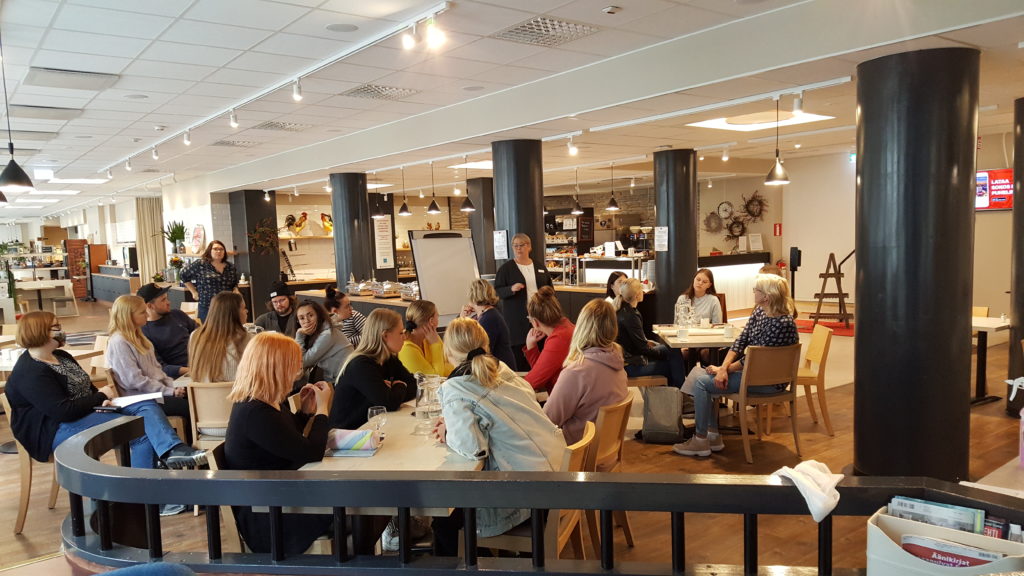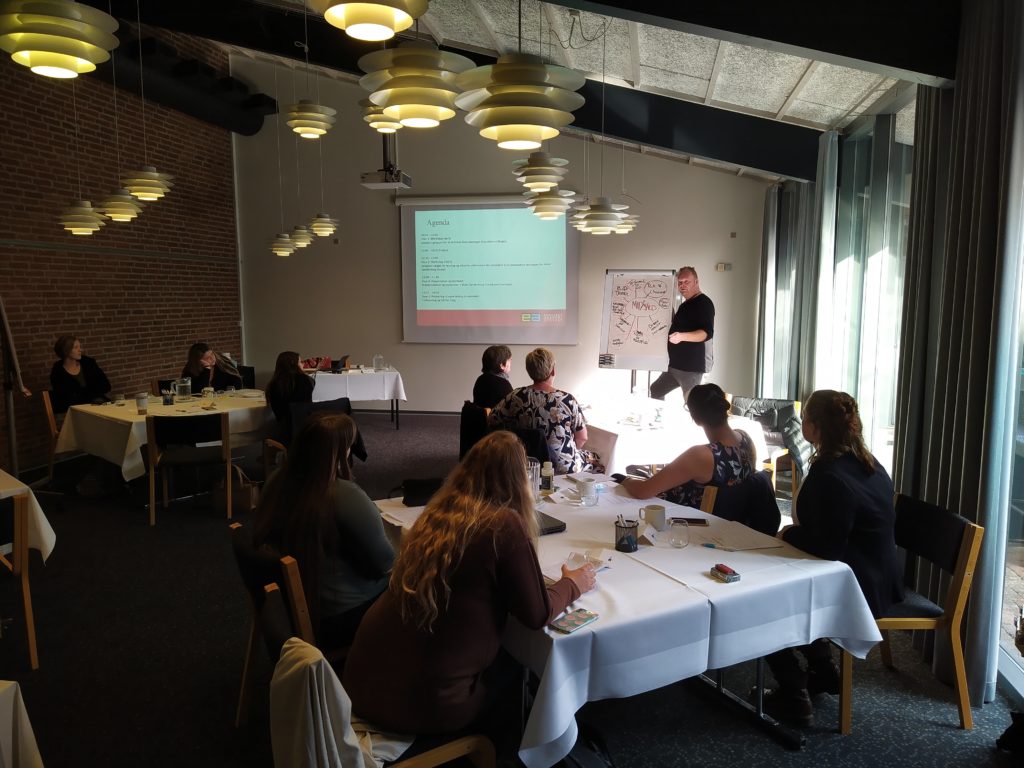Last week, the University of Turku (UTU) and Business Academy SouthWest (BASW) conducted several Work-Based Learning sessions in Pori, Finland and Sønderborg, Denmark. The topic of the Work-based learning (WBL) sessions was Food waste in the food service sector. The goal of these sesssions were to study teacher and learner strategies in Creative Problem Solving, as a means to obtain meaningful learning. Specifically, the project aims at exploring how teachers and learners determine the right problem to solve, and how to solve it. Inspired by a design thinking process, the focus is on emphasizing with customer needs, defining a problem and ideating to solve the problem. The notion of meaningful learning is studied from the perspective of how teachers and learners co-create a learning process that aims at supporting better understanding of the needs of the customer and strategies for solving their problems.
The project project draws upon existing state-of-the-art research in education, such as Hesse et al.’s framework for teachable collaborative problem solving skills ( 2015), Tynjälä et al.’s model of integrative pedagogy (2016) and work-based learning (e.g. Kis, 2016; Lemanski & Overton, 2016; Siebert, Mills, & Tuff, 2009).
The project aims to answer the following research questions:
- How do teachers script engaging learning processes that support development of learner autonomy and agency?
- What constitutes an industry-relevant learning process?
- Can student work readiness be improved by supporting learner autonomy and agency?
A more in-depth description of the project can be found here.
What did the sessions look like?
Working together with staff from the Sokos Hotel Vakuuna Pori and students and teachers from the Satakunta University of Applied Sciences in Finland, UTU observed teacher and learner strategies. Firstly, the hotel manager Riina Ojanen presented the problem of food waste at the hotel. Students then, in groups, worked on redefining the problem and were then allowed to ask the hotel manager additional questions in order to reformulate and fine-tune the problem. They then worked in groups to provide solutions. Each group came onstage to present their findings. The other groups listened carefully, and asked more questions when necessary. The hotel manager gave feedback on the solutions provided. Finally, students evaluated their learning experience using an online tool, mentimeter. Teachers evaluated the groups learning process and their own teaching experience.


In Denmark, BASW worked together with Hotel Sønderborg Strand, where a similar structure was held. First, the students received a tour of the hotel (with masks due to CoVID-19 restrictions in Denmark!). The topic of food waste was then presented by Executive Chef Allan Larsen, Hotel Manager Dorit Møller and marketing coordinator Trine Nielsen. The groups (and teacher), just as in Finland, followed the same process to reach solutions, as well as their evaluation of the session.
Picture (left): A student presenting his group’s solution to Food Waste to other students.
